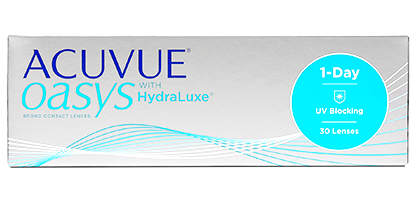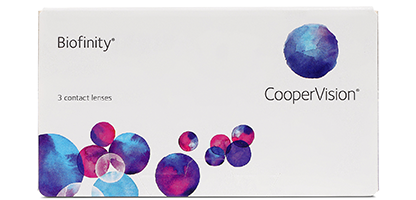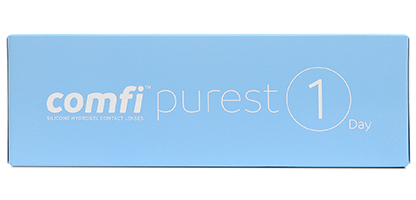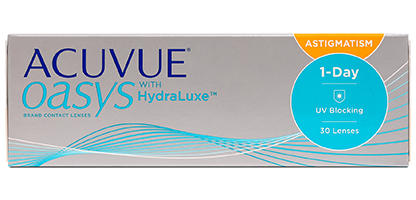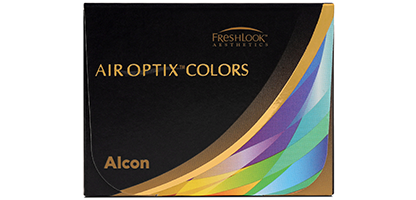What are soft contact lenses made of?
Soft contact lenses are made of soft water-based plastic material. The composition of these plastics may vary, thus, creating a slightly different sensation and level of comfort depending on the wearer. Both hydrogel and silicone hydrogel lenses are soft lenses.
The material is absorbent and makes the lens soft when hydrated with water or solution but hardens when dry.
Hydrogel lenses
Fun fact: Did you know that the first hydrogel lens was introduced in 1971 by Bausch and Lomb?
Hydrogel lenses are soft lenses made from gel-like water containing polymers that are thin and can easily adhere to the eye’s surface providing improved comfort and ease of use. The plastic material is combined with oxygen to allow water to pass through. However, when they dry out, it reduces the flow of oxygen to the cornea. To overcome this problem, silicone hydrogel lenses were introduced.
Silicone hydrogel lenses
Silicone lenses were introduced in the early 2000s.
Silicone is an extremely flexible material, which makes it excellent for making not only contact lenses, but many other medical products such as implants and tubing.
- These lenses are highly porous and absorbent, allowing a higher oxygen transmissibility and more oxygen to permeate through the contact lens and reach the surface and cornea of the eye.
- If oxygen cannot reach the cornea, it causes a condition referred to as hypoxia. This condition can lead to blurry vision, red eyes, loss of visual acuity and can also increase the risk of eye-related complications.
Should I wear hydrogel or silicone hydrogel lenses?
It’s perfectly okay to wear either option, and most people get on with standard hydrogel lenses fine. However, it depends on which option is best for your eyes. Sometimes you may need to try different options and see which one works best for you. You should consult your optician before opting for contact lenses.
What are hydrogels used for?
Just like silicone hydrogel lenses, standard hydrogels are used to correct a wide range of prescriptions. They are usually cheaper than silicone hydrogel lenses and more popular than rigid and gas permeable lenses which are made from a harder material.
Benefits of silicone hydrogel lenses
- Comfort and oxygen flow: Silicone hydrogel lenses offer an increased level of comfort and oxygen throughout the day. For two weekly and monthly contact lenses, silicone hydrogel material helps to ensure that your lenses remain breathable throughout their entire wearing cycle.
- Duration of wear: These lenses can be worn more comfortably for longer periods of time. This is especially helpful for those who live active lifestyles, spend long periods of the day looking at a screen, or who are easily susceptible to dry eyes.
- Can be worn as extended wear: As these lenses can be used for a longer duration, some can also be worn as extended wear lenses when approved by your optician. Extended wear contact lenses are suitable for continuous wear day and night without needing to be removed, for a fixed amount of time (typically one week). Extended wear lenses are perfect for those with a busy schedule as they eliminate the hassle of a contact lens cleaning routine. However, it is highly recommended that you consult your optician before opting for these lenses.
Daily disposable silicone lenses are a popular and more convenient choice as the risk of developing an eye infection for the contact lens wearer is lower. Whichever lenses you decide to choose, we recommend consulting your eye care professional first for tailored advice.
Which silicone hydrogel lenses should I buy?
Choosing a suitable silicone hydrogel lens depends on your vision and lifestyle needs. Here’s a list of the best silicone contact lenses curated by our expert Contact Lens Optician, Tina Patel. Whether you’re after dailies, monthlies or extended wear, you can refer to this list just to get an idea!

 Offers
Offers Account
Account
 Favorite
Favorite
 Basket
Basket

 OFFERS
OFFERS














